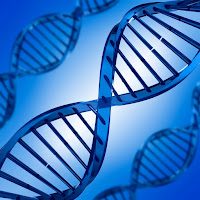As research continues, cures for dementias such as Huntington’s are within our grasp. Your support can help make the next discovery possible.
DEERFIELD, Ill.–(BUSINESS WIRE)– Lundbeck and the Hereditary Disease Foundation announced the launch of the fifth annual Build Hope for Huntington’s Disease (HD) initiative. The online donation campaign helps support the Casa Hogar Corea de Huntington Amor y Fe (Huntington’s Chorea Home of Love and Faith). This clinic provides care for the Venezuelan families who were essential in leading to groundbreaking discoveries in HD and other genetic diseases.
To prompt a donation from Lundbeck, visit:
www.BuildHopeforHD.com
or www.hdfoundation.org and click on the campaign icon. For every click before the end of the year, Lundbeck will donate $15 to the clinic, up to $25,000.
“Thanks to the families living around the shores of Lake Maracaibo, we located the HD gene in 1983 and found the gene itself in 1993”
“For the past four years, Lundbeck has generously supported the Casa Hogar, which is so crucial to the Venezuelan families with Huntington’s disease. These Venezuelan families helped find the Huntington’s disease gene,” said Nancy Wexler, Ph.D., President of the Hereditary Disease Foundation and Higgins Professor of Neuropsychology, Columbia University. “Each year, Lundbeck’s support helps sustain them at a critical moment in time. Lundbeck has provided over $260,000 since the campaign’s inception four years ago. This generous support has sustained the clinic and allowed it to continue serving the local HD community.”
To celebrate the fifth anniversary of Lundbeck’s partnership with the Hereditary Disease Foundation, Lundbeck is also announcing an additional five years of support for the Casa Hogar clinic through Build Hope for HD.
“Through the Build Hope for HD campaign, Lundbeck has had the privilege of giving back to the Venezuelan HD families who have played such a critical role in advancing our understanding of HD and genetic research,” said Raimonds Dzelme, Senior Director of Movement Disorders Marketing of Lundbeck in the United States. “We are absolutely thrilled to announce our support of this important campaign for another five years as part of our long-term commitment to the HD community. As research continues and progress is made, we look forward to contributing to future advancements and ultimately a cure that will help bring hope to the families who are affected by this devastating disease.”
The Casa Hogar clinic opened in 1999 after a decade of collaboration between the Hereditary Disease Foundation and local Venezuelan authorities. The Casa Hogar provides free general and HD-specific medical treatments, food, care and an integrated nursing home to thousands of family members with HD who live along the shores of Lake Maracaibo. The clinic serves as a model for best care practices in the HD community, despite challenges of poverty in the area. The Hereditary Disease Foundation has supported the costs associated with the clinic for fifteen years, including medical care, supplies, salaries and other expenses.
“Thanks to the families living around the shores of Lake Maracaibo, we located the HD gene in 1983 and found the gene itself in 1993,”1,2 said Wexler. “These extraordinary family members revolutionize HD research and forever changed the lives of people living with HD around the world. The Casa Hogar opened to pay tribute to the sacrifices made by these families. It is crucial to support this community and work together to find a cure for HD! This is within our grasp! Your support makes the next discovery possible.”
To learn more about the clinic and how much each click matters, visit the Moving Together for HD Facebook page or the Hereditary Disease Foundation’s website (www.hdfoundation.org).
About Huntington’s Disease
Huntington’s disease is a hereditary neurodegenerative disease characterized by a triad of behavioral, cognitive and motor symptoms.3 These symptoms vary from person to person. The duration of the disease after the onset of symptoms can range from 10 to 30 years4 and currently there is no cure.4 The HD gene’s mutation, which results in the disease, was localized in 1983 and isolated in 1993.1,2 For more information on HD, please visit the Hereditary Disease Foundation website (www.hdfoundation.org).
About the Hereditary Disease Foundation
The Hereditary Disease Foundation aims to cure Huntington’s disease (HD) by supporting research aimed at developing new treatments and cures. The Hereditary Disease Foundation was started by Dr. Milton Wexler in 1968 when his wife was diagnosed with Huntington’s disease. The Foundation uses a variety of strategies – workshops, grants, fellowships, and targeted research contracts – to solve the mysteries of genetic disease and develop new treatments and cures. The Hereditary Disease Foundation initiated the International-Venezuela Huntington’s Disease Collaborative Research Project and played a key role in the discovery of the HD gene, which was localized in 1983 and isolated in 1993.1,2 For more information, visit the Hereditary Disease Foundation website (www.hdfoundation.org).
About Lundbeck in the U.S.
Based in Deerfield, Ill., Lundbeck U.S. was formed in 2009 as a wholly-owned subsidiary of H. Lundbeck A/S in Denmark. With a focus on accelerating advances in brain disorders, employees are engaged in the research, development, production, marketing and sale of innovative therapies that fulfill unmet medical needs among people living with challenging and sometimes rare neurologic and psychiatric disorders. In its late-stage research pipeline, the company has neurology compounds under investigation for Alzheimer’s disease, stroke and epilepsy, in addition to therapies in development for mental health disorders. With a special commitment to the lives of patients, families and caregivers, Lundbeck actively engages in hundreds of initiatives each year that support our patient communities. To learn more, visit us at www.LundbeckUS.com and connect with us on Twitter at @LundbeckUS.
References
- Gusella J, Wexler N, Conneally PM, Naylor S, Anderson M, Tanzi R, Watkins PC, Ottina K, Wallace M, Sakguchi A, Young AB, Shoulson I, Bonilla E, Martin JB. A polymorphic DNA marker genetically linked to Huntington’s disease. Nature 1983; 306:234-238.
- Huntington’s Disease Collaborative Research Group. A novel gene containing a trinucleotide repeat that is expanded and unstable on Huntington’s disease chromosomes. Cell 1993; 72:971-983.
- Marshall FJ, Clinical Features and Treatment of Huntington’s Disease. Movement Disorders 2004; 1:589-596.
- Huntington’s Disease. Mayo Clinic. http://www.mayoclinic.com/health/huntingtons-disease/DS00401/METHOD=print. Last accessed 9/8/14.











